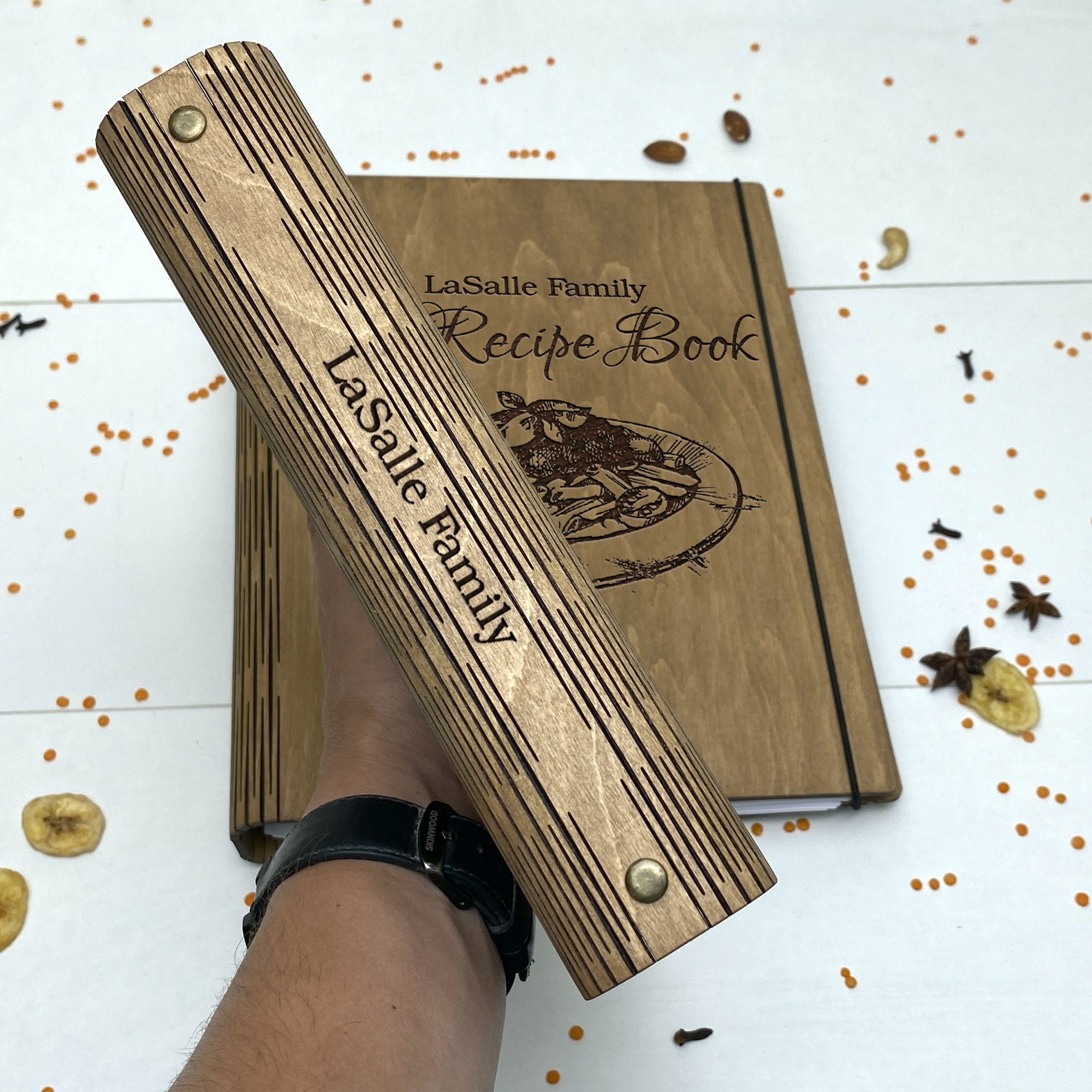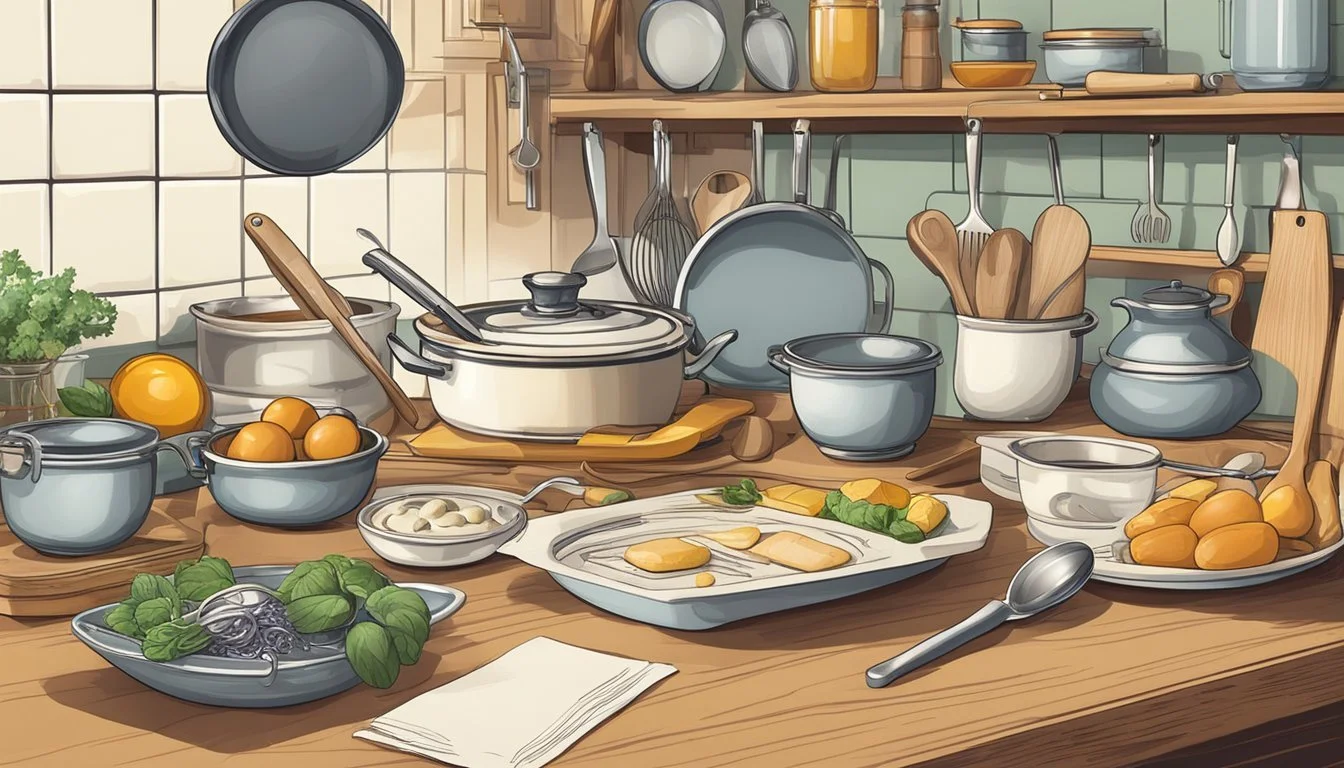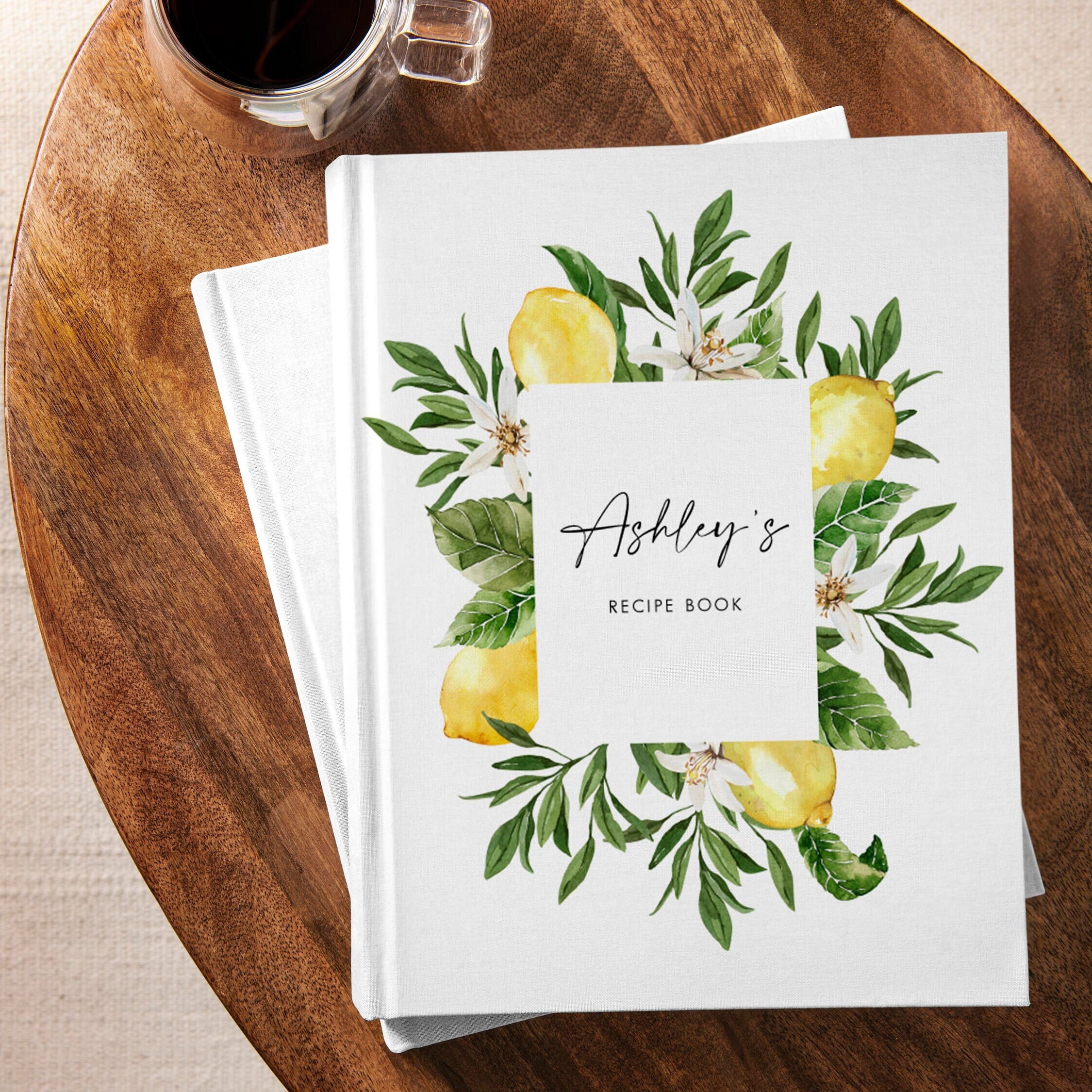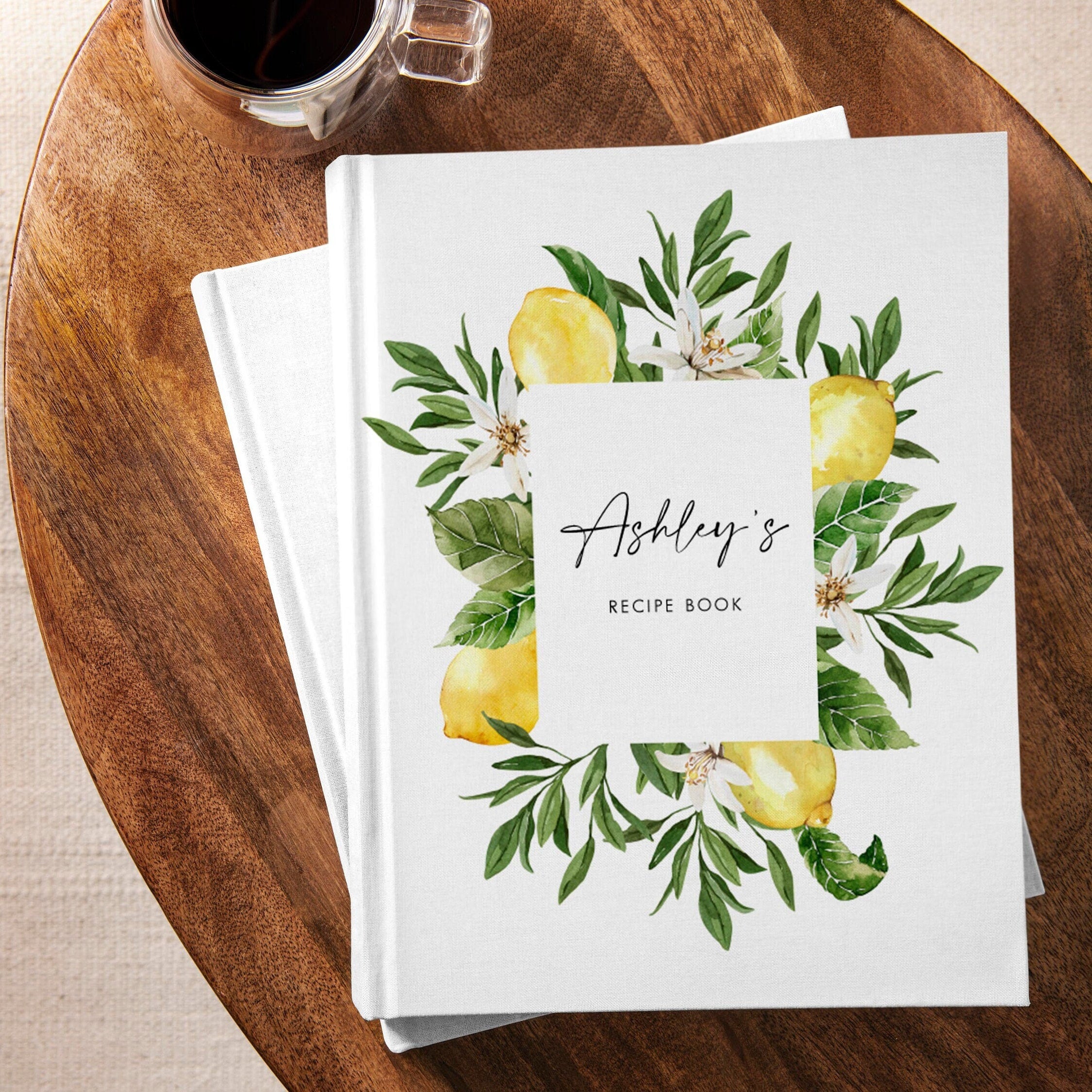The power of food goes beyond its ability to nourish our bodies. It has the unique ability to bring people together, evoke memories, and tell stories. For many families, recipes hold a special place in their hearts as they are passed down from generation to generation, creating a culinary legacy that is cherished by all. In today's digital age, where everything is becoming more digitized and virtual, there is a growing appreciation for tangible and personal items. This is where personalized family recipe books come in - they serve as a timeless keepsake that not only preserves culinary legacies but also creates lasting memories for generations to come.
Capture Your Culinary Legacy: Preserving Family Recipes Through a Personalized Recipe Book

Food is an essential part of our lives, and it holds a significant role in shaping our identities. Family recipes, in particular, are like heirlooms passed down through the ages, carrying with them the flavors, stories, and traditions of our ancestors. These recipes are often handwritten, stained with ingredients, and contain notes and tips from different family members. They are filled with love, nostalgia, and a sense of belonging. But, as time passes, these precious recipes can get lost or forgotten. This is where a personalized family recipe book comes in - it ensures that your family's culinary legacy is preserved and passed down to future generations.
The Importance of Preserving Family Recipes
Family recipes are more than just a list of ingredients and instructions; they are a representation of who we are. They are an integral part of our heritage, and preserving them is essential for many reasons. Firstly, they are a link to our past, allowing us to connect with our ancestors and their way of life. Secondly, they are a piece of history that showcases the culture and traditions of a family. Lastly, recipes often trigger fond memories and emotions, making them valuable keepsakes that can be passed on to future generations.
How a Personalized Recipe Book Captures Culinary Legacies
A personalized recipe book goes beyond just listing recipes. It's a curated collection of family favorites, complete with stories, anecdotes, and photographs that provide context and bring the recipes to life. By creating a personalized recipe book, you are not only preserving your family's culinary legacy but also capturing its essence. Each recipe is like a thread in a tapestry, weaving together the different flavors, techniques, and memories that make up your family's unique cuisine. It becomes a precious heirloom that can be shared and treasured for years to come.
| Table 1: Benefits of Creating a Personalized Family Recipe Book |
|---|
| Preserves family history and traditions |
| Creates a sense of connection and belonging |
| Passes down cherished recipes to future generations |
| Provides a link between past and present |
| Preserves memories and emotions associated with food |
A Culinary Journey Through Time: Documenting Family Recipes for Future Generations

Creating a personalized family recipe book is more than just writing down recipes. It's a journey through time, as each dish carries with it a story and a piece of history. As you compile your recipe book, you will discover new things about your family, their traditions, and the evolution of their recipes. It's a chance to document and preserve these stories, creating a roadmap for future generations to follow.
Gathering Recipes from Different Generations
The first step in creating a personalized recipe book is gathering recipes from different family members. This includes grandparents, parents, aunts, uncles, and even cousins. Everyone has their own unique recipes and cooking styles, adding depth and variety to the recipe book. Ask each family member to share their favorite recipes and any stories or memories associated with them. This will not only add a personal touch to the recipe book but also create a sense of collaboration and connection among family members.
Organizing and Editing Recipes
Once you have gathered all the recipes, it's time to organize and edit them. Start by categorizing the recipes into different sections such as appetizers, main dishes, desserts, etc. You can also group them by the person who shared the recipe or the occasion they are often made for. This will make it easier for readers to navigate through the recipe book. Next, edit the recipes for clarity and consistency. Make sure to include exact measurements, cooking times, and any special techniques or notes. You can also add personal touches like handwritten notes or photographs to make the recipes even more special.
Adding Personal Touches
One of the most significant benefits of creating a personalized family recipe book is the ability to add personal touches. You can include family photos, stories, and memories associated with each recipe. This not only adds depth to the book but also makes it a cherished keepsake for future generations. You can also include a section on the history of your family's cuisine, sharing how certain dishes came to be and what they represent. Adding a family tree at the beginning of the book is another great way to showcase the different generations and their contributions to the recipes.
| List 1: Tips for Creating a Personalized Family Recipe Book |
|---|
| Gather recipes from different family members |
| Categorize recipes for easy navigation |
| Edit recipes for clarity and consistency |
| Add personal touches like photos and stories |
| Include a family tree and history of family cuisine |
Preserving and Sharing Family History Through Recipes

Food has always been a significant part of human history. It tells stories of different cultures, traditions, and experiences. By preserving your family's recipes, you are not only preserving the culinary legacy but also a piece of history. A personalized family recipe book serves as a time capsule, documenting the history and traditions of your family through the lens of food.
Sharing Recipes with Future Generations
One of the main purposes of creating a personalized recipe book is to pass down cherished recipes to future generations. By doing so, you are not only preserving the recipes but also sharing them. Food has a magical ability to bring people together, and by sharing these recipes, you are fostering a sense of connection and belonging among your family. These recipes will continue to create memories for generations to come, keeping your family history alive and thriving.
Preserving Cultural Traditions
Many families have unique cultural traditions that are passed down through their recipes. It could be a special dish made during holidays or a secret ingredient that has been used for generations. By documenting and preserving these recipes, you are also preserving these cultural traditions. This is especially important for families who may have migrated to new countries, as it allows future generations to stay connected to their roots and understand their cultural heritage.
Strengthening Bonds and Creating Memories
Creating a personalized family recipe book is not just about preserving and sharing recipes; it's also about strengthening bonds and creating memories. As you work together to compile the book, you will have the opportunity to bond with family members, reminisce about old times, and create new memories and experiences. This collaborative effort will foster a sense of unity and belonging, making the recipe book even more special for everyone involved.
| Table 2: The Cultural Significance of Personalized Family Recipe Books |
|---|
| Preserves cultural traditions and heritage |
| Connects future generations to their roots |
| Strengthens bonds and fosters a sense of belonging |
| Creates lasting memories and experiences |
Creating a Family Heirloom: The Art of Personalizing Recipe Books

In today's digital age, many things are becoming virtual, and physical items are slowly being replaced by their digital counterparts. But there is still something special about holding a physical item in your hands, especially when it's something as personal and sentimental as a family recipe book. These books are not just collections of recipes; they are works of art that hold a family's culinary legacy.
Choosing the Right Book Format
The first step in creating a personalized recipe book is choosing the right format. You can opt for a traditional hardcover book or go for a more modern approach with a photo book. A photo book allows you to add pictures and stories alongside the recipes, making it more visually appealing. Whichever format you choose, make sure it's durable and high-quality, as this is a book that will be passed down to future generations.
Designing the Cover
The cover of a personalized recipe book is what captures the reader's attention and sets the tone for the rest of the book. You can design the cover yourself or get creative and include a family photo, a collage of ingredients, or a favorite family recipe. The possibilities are endless, so have fun with it and make it as personal and unique as possible.
Printing and Binding the Book
Once you have finalized the design and layout of your recipe book, it's time to print and bind it. You can use a professional printing service or opt for a DIY approach. Whichever option you choose, make sure to use high-quality paper and binding materials to ensure the book lasts for generations to come. You can also consider adding a personalized message or dedication on the first page, making each book even more special.
| List 2: Tips for Designing a Personalized Family Recipe Book |
|---|
| Choose a durable and high-quality book format |
| Design a cover that is personal and eye-catching |
| Use high-quality materials for printing and binding |
| Consider adding a personalized message or dedication |
Culinary Time Capsules: How to Craft a Recipe Book That Captures Family Flavors

A personalized family recipe book is more than just a collection of recipes; it's a time capsule that captures the flavors, stories, and traditions of a family. It allows readers to taste and experience the same dishes that their ancestors did, connecting them to the past in a unique and meaningful way.
Writing Recipes with Care and Detail
When writing down recipes, it's essential to be as detailed as possible. This includes precise measurements, cooking times, and any special techniques or tips. But it should also include personal touches like handwritten notes, stories, and memories associated with each recipe. This adds depth and personality to the recipes, making them more than just a list of ingredients and instructions.
Including Family Photos and Stories
One of the best ways to capture the essence of family recipes is by including photos and stories alongside them. These can be old family photos, pictures of the final dish, or even photos of the process of making the dish. You can also add stories about the history of certain recipes, how they came to be, and any special memories or anecdotes associated with them. These personal touches make the recipe book come alive and give readers a glimpse into the family's culture and traditions.
Adding a Touch of Creativity
A family recipe book doesn't have to be limited to just recipes. You can get creative and add other elements to make it even more special. For example, you can include a section on table settings, herb gardens, or homemade gift ideas. You can also add decorative elements to the book, such as doodles, stickers, or pressed flowers from your garden. These little touches make the book one-of-a-kind and showcase your creativity and personality.
| Table 3: Tips for Creating a Culinary Time Capsule |
|---|
| Write detailed and personalized recipes |
| Include family photos and stories |
| Get creative by adding other elements |
| Make the book unique and reflective of your family's culture |
Unlocking the Secrets of Family Traditions: Creating a Personalized Recipe Book

A personalized recipe book serves as a way to unlock the secrets of family traditions. It allows readers to gain insight into how certain dishes came to be, the techniques and ingredients used, and their significance to the family. This is an invaluable resource for future generations as it not only preserves the traditions but also allows them to continue these traditions in their own homes.
Documenting Secret Family Recipes
Every family has that one secret recipe that has been passed down through the years. It could be a secret ingredient or a special technique that makes the dish stand out. These recipes are often closely guarded and only shared with immediate family members. A personalized recipe book provides the perfect platform to document and preserve these secret recipes, ensuring that they are kept within the family for years to come.
Sharing Recipes from Different Cultures
Many families have diverse backgrounds and cultures, resulting in a variety of cuisines and recipes. A personalized family recipe book is an opportunity to showcase and share these recipes with future generations. It allows readers to experience different flavors and cultures through food, creating a sense of understanding and appreciation for their family's heritage.
Learning From Past Generations
Creating a personalized family recipe book is also a chance to learn from past generations. As you collect and compile recipes, you will have the opportunity to ask questions, get tips, and learn about different cooking styles and traditions. This is especially important for younger family members who may not have had the chance to spend time in the kitchen with older relatives. The recipe book becomes a way to bridge the generation gap and pass down valuable knowledge and skills.
| List 3: Benefits of Creating a Personalized Recipe Book That Preserves Family Traditions |
|---|
| Documents and preserves secret family recipes |
| Shares recipes from different cultures and backgrounds |
| Provides an opportunity to learn from past generations |
A Legacy of Love and Flavor: How to Make a Family Recipe Book that Inspires Future Cooks
Food has the power to evoke emotions, create memories, and bring people together. By creating a personalized recipe book, you are not only preserving your family's culinary legacy but also inspiring future cooks. It's a way to pass down skills, knowledge, and traditions that can be continued for generations to come.
Encouraging New Generations to Cook
With the rise of convenient and fast food options, cooking at home is becoming a lost art. But by creating a personalized family recipe book, you are encouraging younger generations to develop an interest in cooking and continue the tradition. You can even involve them in the process of making the book, teaching them valuable skills and sharing stories and memories along the way.
Keeping Recipes Alive
As time passes, some recipes may get lost or forgotten. By documenting and preserving them in a personalized recipe book, you are keeping them alive for future generations. This is especially important for families who have moved away from their hometowns, as it allows them to continue making dishes that are part of their cultural heritage.
Passing Down Culinary Skills and Knowledge
Creating a personalized recipe book is more than just listing down ingredients and instructions; it's about passing down valuable culinary skills and knowledge. Older family members can share their expertise, techniques, and tips, ensuring that they are passed down to future cooks. This creates a sense of continuity and adds depth to the recipes, making them more than just a list of instructions.
| Table 4: The Impact of Personalized Family Recipe Books on Future Generations |
|---|
| Encourages younger generations to cook |
| Keeps recipes alive and preserves cultural heritage |
| Passes down valuable culinary skills and knowledge |
A Feast of Memories: Preserving Family Recipes with a Personalized Recipe Book
Food has the unique ability to evoke memories, taking us back in time and reminding us of special moments and experiences. By creating a personalized family recipe book, you are preserving not just recipes, but a feast of memories that can be shared and cherished for generations to come.
Reliving Family Gatherings and Celebrations
Many families have traditional dishes that are only made on special occasions, such as holidays or family gatherings. These dishes carry with them a sense of nostalgia and bring back memories of these events. By including these recipes in a personalized recipe book, you are not only preserving the dishes but also the memories associated with them. It allows future generations to relive these events and get a taste of what it was like to be part of these celebrations.
Fostering a Sense of Connection and Belonging
Food has always been a way to bring people together, and by sharing family recipes, you are fostering a sense of connection and belonging. As readers flip through the pages of the recipe book, they will feel connected to their family's past, present, and future. It's a way to unite the different generations and create a sense of camaraderie through food.
Passing on Stories and Anecdotes
One of the best things about a personalized family recipe book is the stories and anecdotes that accompany each dish. These stories may seem trivial, but they hold a wealth of memories and emotions. By passing them down to future generations, you are ensuring that these stories are not forgotten and that the legacy of your family's traditions lives on.
| List 4: The Significance of Preserving Memories Through a Personalized Recipe Book |
|---|
| Relives family gatherings and special events |
| Fosters a sense of connection and belonging |
| Passes on stories and anecdotes that accompany each dish |
Conclusion
A personalized family recipe book is more than just a collection of recipes; it's a way to preserve and share your family's culinary legacy. By capturing secret recipes, sharing cultural traditions, passing down skills and knowledge, and preserving memories, you are creating a priceless heirloom that can be enjoyed by future generations. So gather your family's favorite recipes, add in some stories and anecdotes, and create a unique and meaningful recipe book that will be cherished for years to come.





